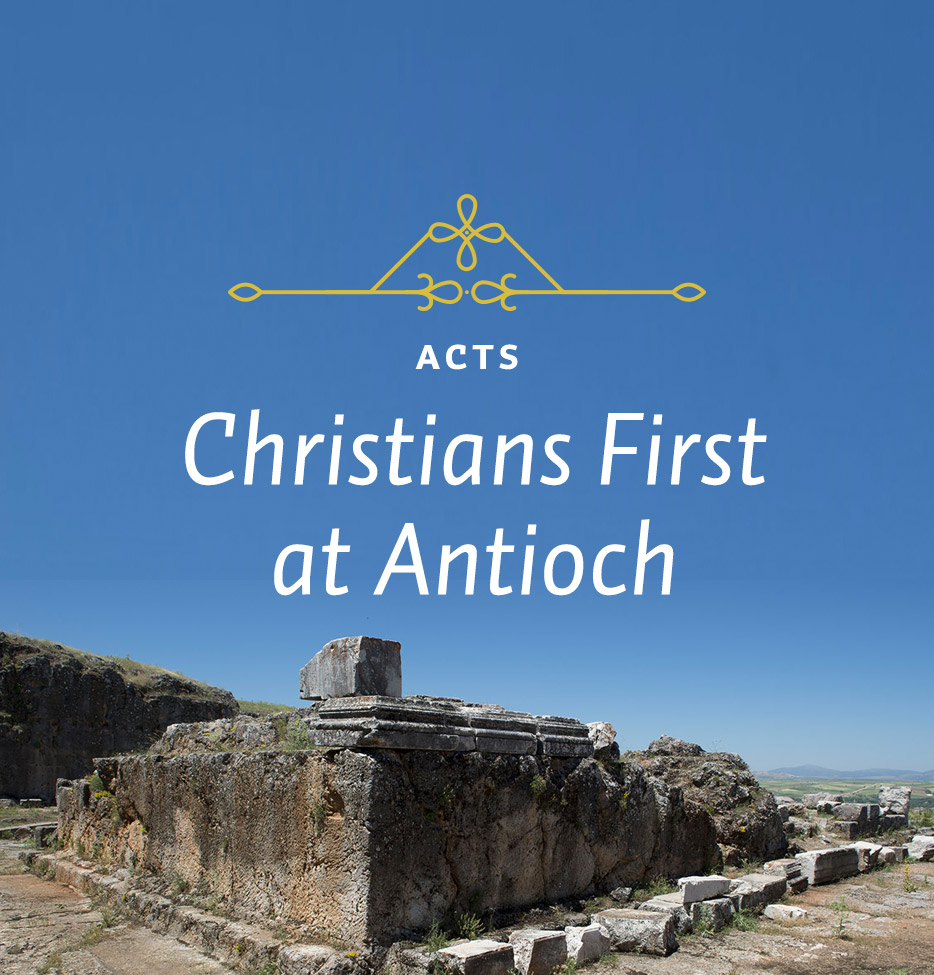In the previous study we were introduced to Barnabas, a generous Levite from Cyprus. In today’s study we look at Barnabas the encourager.
4. He was an encourager. The apostles gave him the special name Barnabas to acknowledge this quality. Barnabas means “Son of Encouragement.” Barnabas was the man the Jerusalem Jews decided to send to Antioch. Why not Peter? It might be that Peter was busy or away somewhere else. Or it might be that they wanted someone who would be able to look at the situation with fresh eyes, not “tainted,” as they might suppose Peter was by his experience at Joppa and Caesarea. Whatever the case, Barnabas was a good man. So Barnabas went to Antioch.
What he did is interesting. We are told, first, that when Barnabas arrived and saw the evidence of the grace of God “he was glad” (Acts 11:23). I suppose it is possible to pass over something like that and say lightly, “Well, of course he was glad; he ought to have been glad. God was working. Gentiles were getting converted.”
Yes, but we must remember that this was a new situation, and it was not a foregone conclusion that a Jew, particularly a Levite, would rejoice in it. He might have opposed preaching to Gentiles entirely. Or he might have said begrudgingly, “Well, I guess the Gentiles have a right to hear too, if they must. If God is determined to include them, I won’t stand in His way.” But Barnabas did not react like that. On the contrary, when he saw that the Gospel was bearing fruit in the Gentile communities, he was delighted to see it. These were not his people. Antioch was not his home city. But God was working, and he was pleased.
We need to learn from Barnabas in this respect to be happy when God works somewhere else. All of us are happy when God works among us, blessing our denomination, church, people, or family. When He blesses somewhere else, well, we are not always so happy. We are restrained in our enthusiasm.
Then again, not only did Barnabas rejoice at what was going on, he also “encouraged” the believers. The text says, “He… encouraged all to remain true to the Lord with all their hearts” (v. 23). I suppose he was thinking, “If God is working here, well, I want to be at work here also.” So he exercised his gift of encouragement and strengthened others.
When a person is really glad about something God is doing, he normally works with the others among whom God is doing it. And, when he or she works with other people, the person is almost inevitably glad about it. The reason some of us are so sour, I suppose, is that we stand back, saying, “Let God work.” Or, which I think maybe is even worse, we say, “Let others work. Let them do the job.” We don’t like the other people or what God is doing among them, so we don’t pitch in. If we would, some of the blessing would rub off.
If you are not involved in witnessing, you ought to be, because there is joy in seeing how God blesses any faithful witness.
If you are not involved in a Bible study where God is bringing people to Christ and people are growing, you ought to be, because there is joy in the fruit of such studies.
If you are not participating in the life and worship of an active, working, worshiping, witnessing church, you ought to be, because there is joy in seeing how believers grow together into a fellowship where others are helped and the Lord Jesus Christ can be seen.
Let’s ask a bit more about Barnabas. We have seen what he did. Let’s ask, “Why did he respond in this positive and encouraging way and not in some of the other ways we have suggested?” The answer occurs in verse 24. It was because “he was a good man, full of the Holy Spirit and faith.”
It is hard to read “he was a good man” without thinking of the way the Lord Jesus Christ handled a similar statement when the rich young man came to him and said, “Good teacher, what must I do to inherit eternal life?” (Luke 18:18). Jesus answered, “Why do you call me good? No one is good except God alone” (v. 19). Jesus’ point was that, if the young man wanted to learn from Him, he needed to start with a higher view of Jesus than His merely being a good man. He was calling Him “good teacher,” which was the equivalent of calling Him “good man.” Jesus wanted him to see that either He was the “good God” or he was a “bad man.” Yet here, when Luke speaks of Barnabas, he says without any apparent difficulty or embarrassment, “He was a good man.”
How can this be? The answer is in what comes immediately after, for the next phrase explains that Barnabas was good because he was “full of the Holy Spirit and faith.” That is, he had the Spirit of Jesus Christ within him, and he had faith, which is a fruit of the Spirit. He was strong in these graces. Moreover, it was because of the presence of Jesus Christ within him that when he got to Antioch he was able to rejoice at what was happening. The Spirit within him was bearing witness with the Spirit that was in the Gentile converts, and he found himself saying, “It is marvelous what God is doing among us.”






